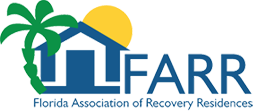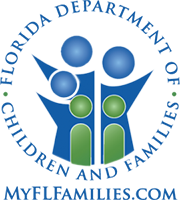How Does Drug Detox Work?
Detox is the term used when someone with substance use disorders stops using drugs and alcohol and intentionally clears their body of them. When drugs or alcohol are stopped after frequent or heavy use, withdrawal symptoms can occur and can range from mild to severe. In general, medically assisted detox programs have three steps:
- Evaluation: Prior to beginning medically assisted detox, intake coordinators will complete a comprehensive assessment of your addiction, medical, and psychiatric history so an individualized treatment plan can be developed. Insight from families and friends can also be helpful when determining your goals for a recovery program.
- Stabilization: Through a variety of medical and psychological therapies, you will be stabilized and monitored for any severe withdrawal symptoms. You can be prescribed medications to decrease the severity of these symptoms and to ensure your safety while your body adjusts to the absences of drugs in your system.
- Discharge Planning: During your time there, your treatment team should work with you to determine what addiction treatment and treatment programs are appropriate for your needs and they will help coordinate the transition to the treatment center. Having the expertise of social workers, doctors, nurses, and other staff is another benefit of completing detox in an addiction recovery program. During this stage, they will be able to answer any questions you have, arrange transportation, and can coordinate your admission to the recovery center you choose.
Can You Detox from Home?
While it is possible to detox from home, it is not recommended because withdrawal symptoms can be potentially life threatening. Seizures and intense dehydration can occur quickly and without the supervisor of medical professionals, complications can happen. In addiction recovery programs, you will be monitored and supported through the duration of the detox process to keep you as safe and comfortable as possible.
Why Go to a Medical Detox Program?
Due to the unpredictability of how intense and how long withdrawal symptoms can last, a medically assisted recovery center is recommended. Complications from detox can happen and without the support of evidence based treatments, you could experience severe pain which can compromise the success of your recovery journey. Each person’s recovery journey will be different when they stop using drugs and alcohol, however, some key predictors of how intense the detox process will be included:
- Which substance was used and how frequently.
- Co-occurring disorders or history of medical issues.
- How long the person has been actively addicted.
- Route of consumption such as smoking, snorting or injecting
When detoxing in a treatment center such as a hospital or drug rehab, you will be monitored for severe withdrawal symptoms and medication assisted treatment can be provided to decrease the severity of them.
What Drugs are Used in Detox?
Medication Assisted treatment is a crucial component of addiction treatment and is are an effective evidence based treatment. Common medications used in medication assisted treatment:
- Antiadrenergic agents such as propranolol or clonidine. These block the response of the sympathetic nervous system and can decrease the length of time it takes to detox.
- Anticonvulsants such as Klonopin can help manage the symptoms of withdrawal and prevent seizures.
- Antidepressants work to stabilize chemical imbalances in the brain and improve overall mood. Examples include Prozac or Zoloft.
- Anti-nausea medications such as Zofran decrease nausea.
Having a treatment plan that is medically managed ensures the most success on your recovery journey and sets you up for continued success in an addiction recovery program.
How Long Does Drug Detox Last?
The length of stay at a treatment center will be dependent on several factors, such as what drug you’re detoxing from, length of use, and your overall health. Alcohol, for example, is usually cleared from the body and withdrawal symptoms subsided in about a week. For medications such as Benzodiazepines, it could take two weeks or more to fully detox.
What Happens After Detox?
After completing medically assisted detox, it is recommended that you receive addiction treatment at a residential treatment center, an intensive outpatient program, or an outpatient treatment program. This is when you will identify and address the root causes of your addiction and with the help of behavioral and psychological therapies, you will learn effective coping skills, relapse prevention, and more. You may also receive treatment for co-occurring mental health disorders and medication management to help you be successful in addiction recoveries.
Drug Detox at The Source
The Source Addiction Treatment Center works with several vetted and high quality medically managed detox facilities and will coordinate your transition from detox to their addiction recovery programs. They have several addiction treatment programs including residential treatment, outpatient treatment, and intensive outpatient programs. Your addiction treatment is a top priority at The Source and they take great pride in being there for you in your recovery journey. To find out more about addiction recovery programs available at the Source, please call (800)204-0418 or visit them online at www.thesourceaddictioncenter.com.

 The Source quite frankly saved my life and got me back on track, never giving giving up on me. When you are thinking about and looking through all of the different places to go for treatment this is the one that should stand out from the rest.
The Source quite frankly saved my life and got me back on track, never giving giving up on me. When you are thinking about and looking through all of the different places to go for treatment this is the one that should stand out from the rest.




























